Blog
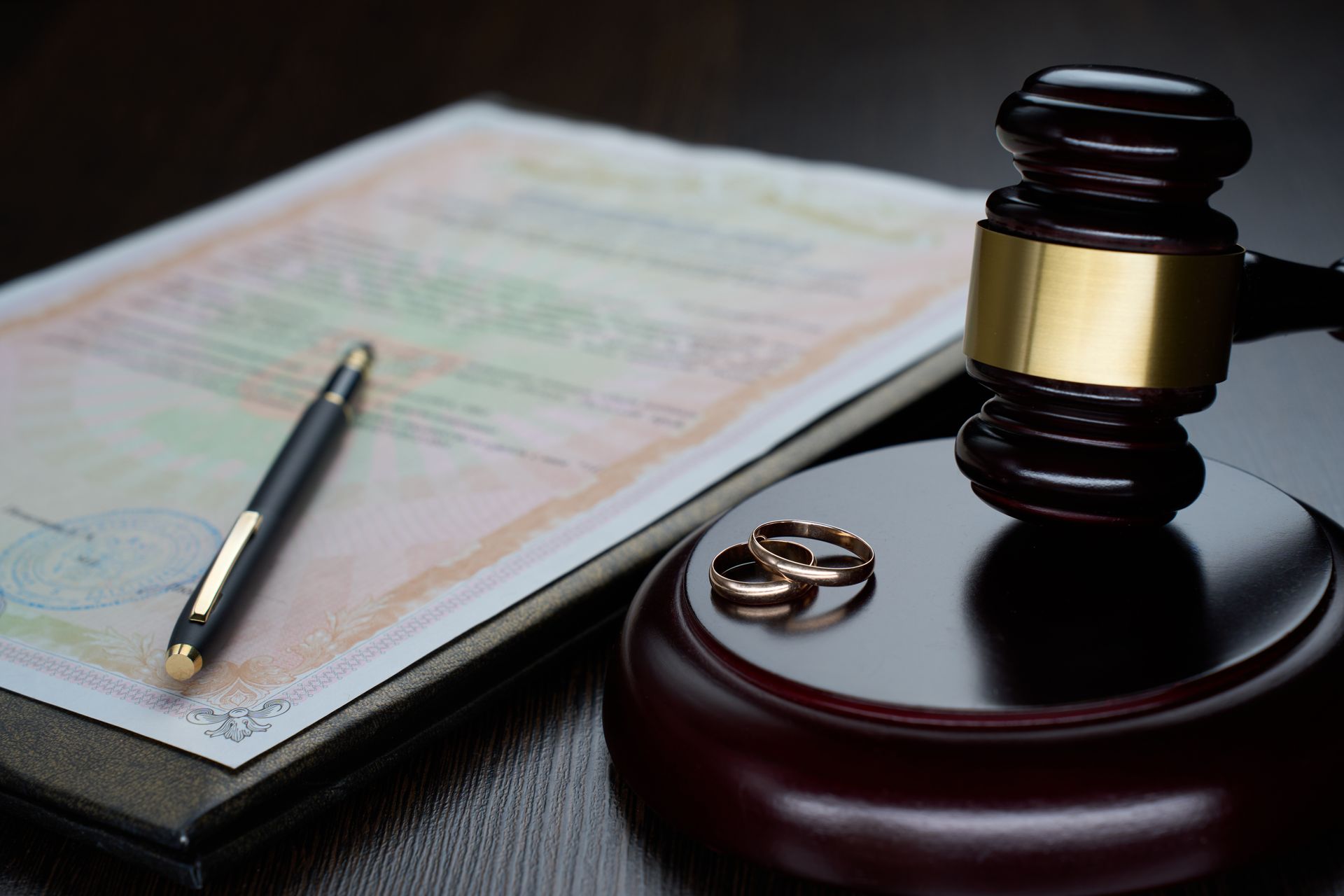
Going through a divorce is never easy. Whether the decision was mutual or one-sided, ending a marriage brings legal, financial, and emotional challenges. In Pennsylvania, the divorce process involves more than just filing paperwork. From dividing assets to determining custody and support, there are a number of steps and requirements that can affect the outcome of your case. This article is not legal advice. Divorce laws can be complex, and each situation is different. If you’re considering divorce in Allegheny County or the surrounding areas, the family law team at Gaydos Law can help you understand your rights and guide you through each step. Types of Divorce in Pennsylvania Pennsylvania recognizes several types of divorce, and which one applies to you depends on your situation. No-fault divorce is the most common route. It can be mutual, where both spouses agree the marriage is over, or unilateral, where one spouse wants the divorce and the other does not. In mutual consent cases, both parties sign affidavits confirming the relationship is irretrievably broken and the court can grant a divorce after a waiting period. In contested no-fault cases, one spouse can file for divorce after a one-year separation. You don’t need the other spouse’s permission, but you will need to prove that the marriage is beyond repair. Fault-based divorce is less common but still available. Grounds for fault include adultery, abandonment, cruelty, bigamy, or imprisonment. Fault divorces can affect property distribution in some cases, but they often involve more litigation and higher emotional stress. Property Division in Pennsylvania Divorces Pennsylvania uses an equitable distribution model, which means marital property is divided fairly but not always equally. Marital property includes most assets acquired during the marriage, such as income, homes, vehicles, retirement accounts, and debts. Separate property—like gifts or inheritances received by one spouse—may not be subject to division if kept separate. The court considers many factors when dividing property, including: The length of the marriage Each spouse’s income and earning potential Contributions to the household, including as a homemaker Standard of living established during the marriage Any prenuptial agreements Equitable does not always mean a fifty-fifty split. One spouse may receive a larger portion of the assets depending on their needs, contributions, or future financial outlook. If you and your spouse can agree on how to divide your property, you can avoid court involvement and settle things through a written agreement. This can reduce legal fees, stress, and delays. Gaydos Law helps clients negotiate and draft clear, enforceable property settlement agreements that reflect their priorities. Spousal Support and Alimony In some cases, one spouse may be required to provide financial support to the other. Pennsylvania recognizes several types of support: Spousal support may be available before the divorce is finalized, especially if one spouse earns significantly more than the other. Alimony pendente lite is temporary financial support meant to keep both parties on equal footing during the divorce process. Alimony after divorce may be awarded based on financial need and the ability of each spouse to support themselves. It’s not automatic and depends on several factors, such as age, health, work history, and the standard of living during the marriage. The court will decide the amount and duration of support if the parties can’t agree. In some cases, support can be modified or terminated if circumstances change. Child Custody and Support in Divorce Cases If you have children, the divorce process will also include decisions about custody and support. Pennsylvania courts prioritize the best interests of the child when making custody decisions. This includes evaluating each parent’s ability to provide a stable, loving environment, their involvement in the child’s life, and their willingness to cooperate with the other parent. There are two types of custody: legal and physical. Legal custody refers to decision-making authority, while physical custody refers to where the child lives. Both can be shared or awarded to one parent, depending on the circumstances. Child support is calculated using state guidelines that consider both parents’ incomes, custody arrangements, and the needs of the child. The goal is to make sure the child receives the financial support they need, regardless of which parent has primary custody. Gaydos Law works with parents to navigate custody and support issues with compassion and clarity. Whether you're seeking a cooperative agreement or responding to a contested situation, their team can help protect your rights and your relationship with your children. How Long Does a Divorce Take in Pennsylvania The length of a divorce case depends on whether the case is contested and how quickly both sides can reach an agreement. In mutual consent divorces, the process can be completed in a few months. In contested cases involving disputes over property, support, or custody, it may take a year or longer. There is a mandatory ninety-day waiting period in mutual consent divorces. In contested no-fault cases, the spouse requesting divorce must wait one year from the date of separation before the court can proceed. Delays can also arise from missing paperwork, court backlogs, or unresolved disagreements. Working with an attorney can help ensure that forms are filed correctly and that your interests are represented at every step. Should You Work With a Divorce Attorney Divorce can affect your finances, your family, and your future. Even in cases where both spouses agree on most issues, it’s smart to have legal representation. A divorce attorney can help you: Understand your rights under Pennsylvania law Protect your interests in property and custody matters Draft and review legal agreements Advocate for a fair outcome during negotiations or court hearings At Gaydos Law, the family law team has handled hundreds of divorces across Allegheny County and the surrounding areas. They understand that every situation is different and provide personalized support based on your goals and needs. Starting the Process If you’re considering divorce, the first step is to schedule a consultation. You don’t need to have everything figured out. A consultation can help you understand what to expect, what documents to gather, and what options are available. You may want to bring information about your finances, assets, and any current custody arrangements if children are involved. The more organized you are, the more productive that first conversation can be. Moving Forward With Confidence Divorce marks the end of a chapter, but it’s also the start of a new one. With the right legal guidance, you can move forward with clarity, security, and a plan for the future. Whether your case is straightforward or complicated, you don’t have to face it alone. Gaydos Law serves clients in White Oak, Pittsburgh, and throughout Western Pennsylvania. Their attorneys are experienced, responsive, and committed to helping you through every stage of the divorce process. This article is for general informational purposes only and is not legal advice. To speak with a divorce attorney about your situation, contact Gaydos Law to schedule a confidential consultation.
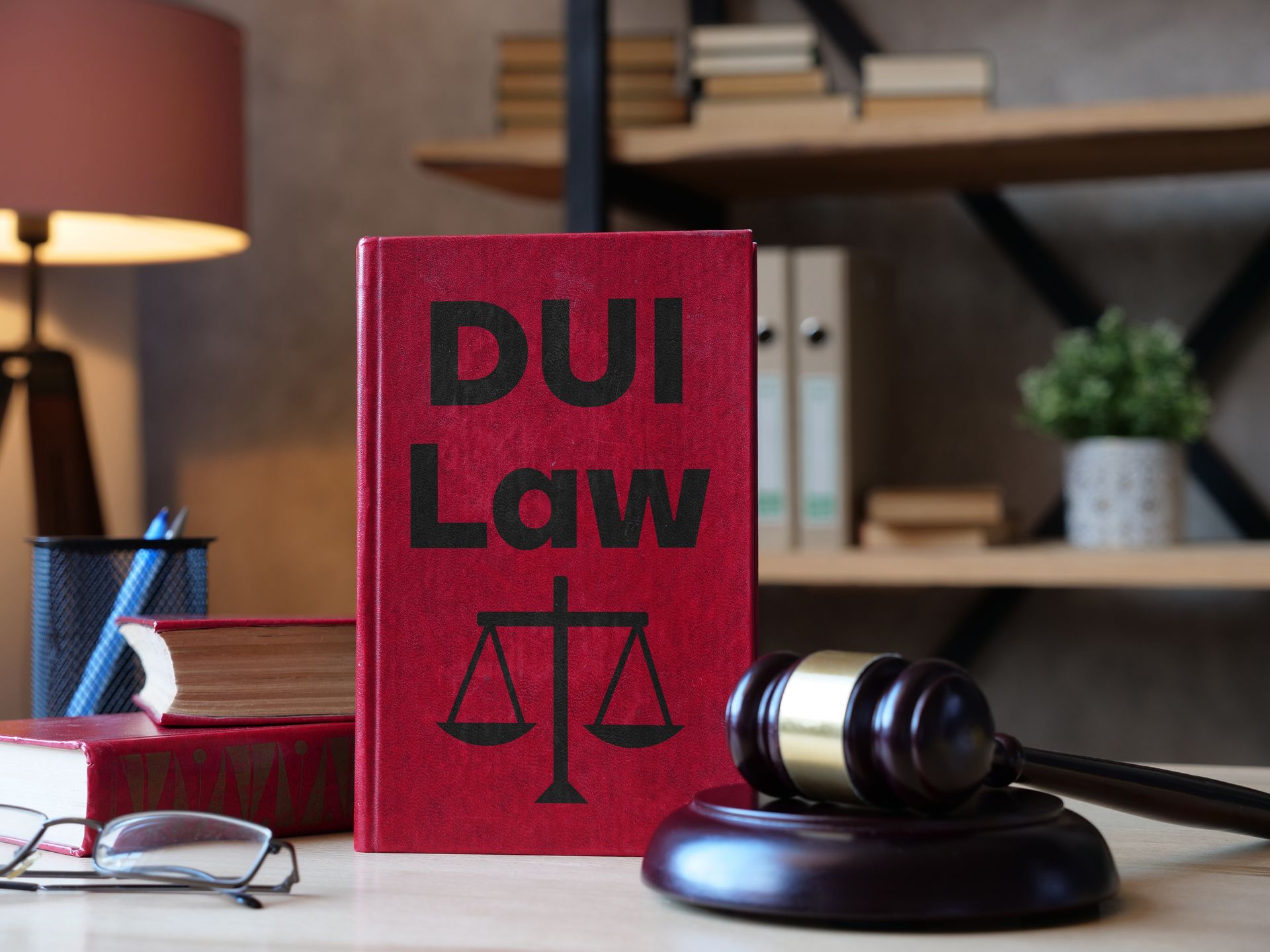
Facing a DUI charge in Pennsylvania can be overwhelming, especially if it’s your first time dealing with the criminal justice system. You may be unsure about your rights, the possible consequences, or how to defend yourself. The process can move quickly, and without the right legal guidance, it’s easy to make decisions that could impact your record, your license, and even your freedom. This article is not legal advice. Each DUI case is different, and outcomes depend on specific facts, circumstances, and prior history. If you're dealing with a DUI in Allegheny County or surrounding areas, the attorneys at Gaydos Law are available to help you understand your situation and explore the best options for your defense. Understanding DUI Laws in Pennsylvania In Pennsylvania, you can be charged with driving under the influence if your blood alcohol content is at or above the legal limit, which is typically point zero eight percent. You can also face DUI charges if you're impaired by drugs, whether prescribed, over-the-counter, or illegal. Pennsylvania has a tiered system for DUI offenses, which considers your blood alcohol level and whether it's your first, second, or third offense. These tiers affect the penalties you could face, including license suspension, fines, mandatory treatment programs, probation, or jail time. The state also has an implied consent law, which means that by driving on Pennsylvania roads, you’ve agreed to take a chemical test if an officer has reasonable grounds to believe you're under the influence. Refusing the test can lead to automatic license suspension and other penalties. The DUI Arrest Process Most DUI cases start with a traffic stop. This might happen because of erratic driving, a traffic violation, or at a sobriety checkpoint. Once stopped, the officer may ask you questions, request your license and registration, and look for signs of impairment such as slurred speech or the smell of alcohol. If the officer suspects impairment, you might be asked to perform field sobriety tests. These are physical tasks meant to evaluate your balance, coordination, and ability to follow instructions. You may also be given a breathalyzer test on the spot or asked to submit to chemical testing at a medical facility or police station. If you're arrested, you’ll be taken into custody, processed, and released either on bail or recognizance depending on the situation. From there, the legal process begins. What Happens After the Arrest After your arrest, you’ll receive a summons for a preliminary hearing. This is your first chance to appear before a judge, who will determine if there is enough evidence to move forward with the case. It’s also a critical opportunity for your attorney to review the charges and potentially challenge the evidence against you. Next, you may be scheduled for a formal arraignment, where you will enter a plea. Depending on the facts of the case, your attorney may pursue a number of strategies at this stage, such as negotiating a plea deal, seeking admission to diversion programs, or preparing for trial. It’s important to have representation throughout the process. DUI laws in Pennsylvania are complex, and prosecutors handle these cases aggressively. An experienced attorney knows how to analyze police reports, challenge improper procedures, and look for ways to minimize the impact on your life. Potential Penalties for a DUI in Pennsylvania Penalties vary depending on the severity of the offense and any prior DUI convictions. For first-time offenders with a lower blood alcohol level, the penalties might include probation, fines, and mandatory alcohol education. However, higher levels of impairment or repeat offenses can result in jail time, longer license suspensions, ignition interlock requirements, and higher fines. In addition to criminal penalties, there are administrative consequences, such as license suspension through PennDOT. These are separate from the court system and can still occur even if you’re not convicted, especially if you refused chemical testing. A DUI conviction can also affect employment, insurance rates, and your personal reputation. That’s why it’s critical to approach the case with a full understanding of what’s at stake and how to respond. Options for First-Time Offenders Pennsylvania offers an Accelerated Rehabilitative Disposition program, known as ARD, for some first-time DUI offenders. This program allows eligible individuals to avoid a criminal conviction by completing a period of supervision, community service, alcohol education classes, and other requirements. If completed successfully, the charges may be dismissed and your record can eventually be expunged. Not everyone qualifies for ARD, and eligibility depends on factors like your blood alcohol content, whether there was an accident, and whether minors were involved. If you're interested in this program, speak with a DUI attorney who can evaluate your case and file the necessary requests. Common DUI Defenses in Pennsylvania Every case is different, but there are several defenses that can be explored depending on the circumstances. These may include: Challenging the validity of the traffic stop Questioning the accuracy of the breath or blood tests Investigating whether field sobriety tests were conducted properly Identifying procedural errors made by the arresting officer Arguing medical conditions that may have affected the test results An attorney can review all the details of your case to determine what strategies are appropriate. The goal is to ensure that your rights were protected throughout the process and to fight for the best possible outcome. Why Legal Representation Matters in DUI Cases Even if you feel the case against you is strong, you shouldn’t go through the process alone. A DUI conviction can carry long-term consequences that affect many parts of your life. Having a knowledgeable attorney by your side helps you understand your rights, options, and the steps you need to take to protect yourself. The team at Gaydos Law includes attorneys with experience on both sides of the courtroom, including former prosecutors who understand how these cases are built. Serving Allegheny County and the greater Pittsburgh area, they provide honest, informed legal support to help clients navigate DUI charges with clarity. Take Action Early One of the most important things you can do after a DUI arrest is to act quickly. Legal deadlines can come up fast, especially with PennDOT's license suspension procedures. The earlier you contact a DUI lawyer, the more time they have to build your defense, preserve evidence, and help you understand what to expect. If you’ve been charged with DUI in Pennsylvania, don’t wait to get answers. Scheduling a consultation with a local attorney can give you the guidance you need to move forward with confidence. This article is for general informational purposes only and is not legal advice. To discuss the specifics of your case, contact the DUI attorneys at Gaydos Law for a confidential consultation.
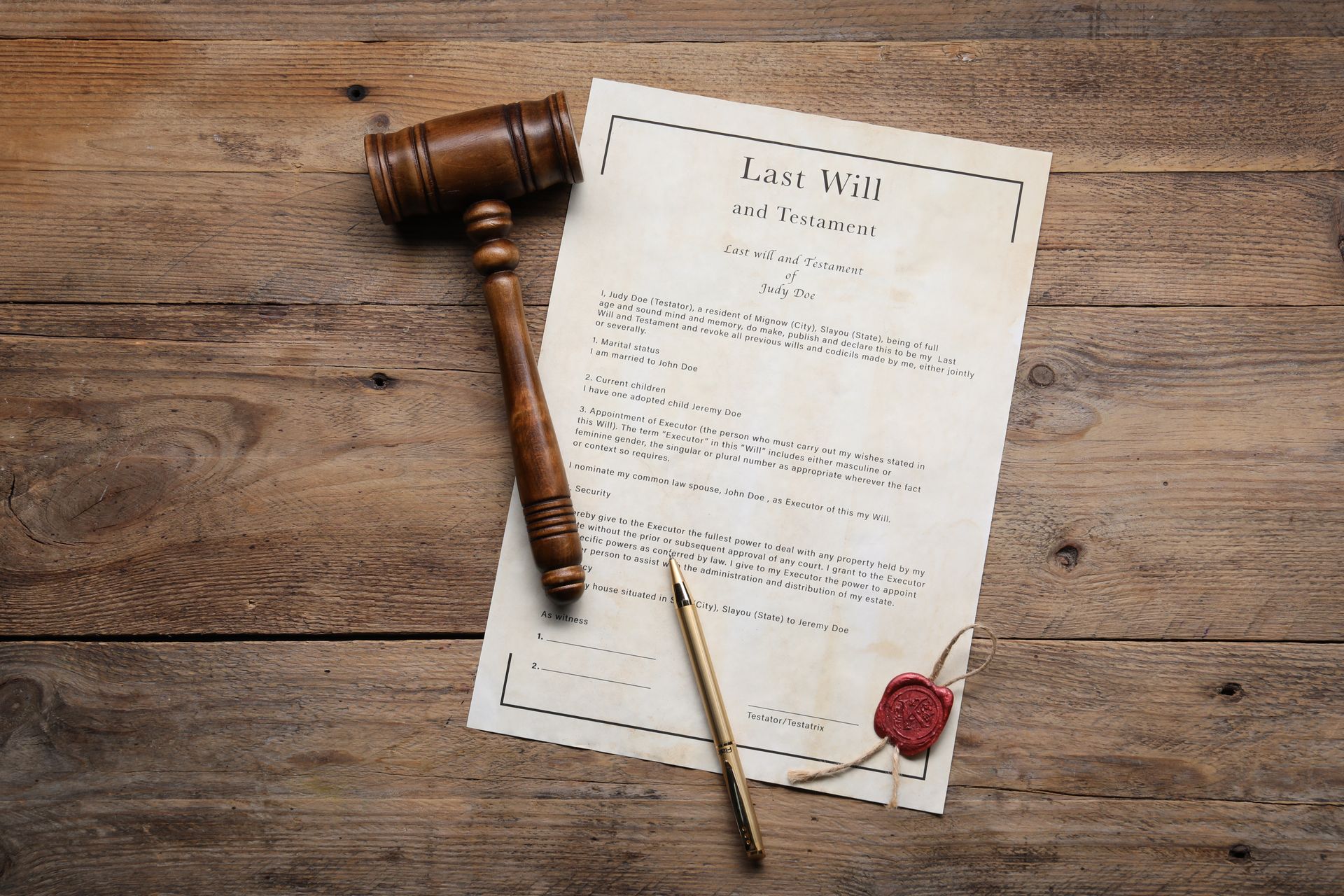
Estate planning isn’t just for the wealthy or elderly. It’s something every adult in Pennsylvania should consider, especially if you have children, own property, or want to control what happens to your assets after you pass. Creating a will is one of the most important steps you can take to protect your family, make your wishes known, and prevent unnecessary stress for your loved ones down the road. This article is not legal advice. Everyone’s situation is different, and Pennsylvania estate laws have specific requirements that need to be reviewed by a qualified attorney. If you’re in Allegheny County or nearby areas, Gaydos Law provides estate planning services that can help ensure your affairs are in order. What a Will Actually Does A will is a legal document that outlines how your assets should be distributed when you pass away. It lets you choose who gets what, who will manage your estate, and who will care for your minor children if applicable. Without a will, the court will make these decisions for you based on Pennsylvania’s intestacy laws. In your will, you can name an executor. This is the person who will carry out your instructions, pay any remaining debts or taxes, and ensure your property is distributed properly. You can also designate guardians for your children, which is one of the most important reasons young parents should have a will in place. What Happens If You Die Without a Will in Pennsylvania If you pass away without a will, Pennsylvania’s intestate succession laws will determine how your assets are divided. The state has a specific order for who inherits, starting with your spouse and children. If you have no spouse or children, it moves to parents, siblings, and so on. The process doesn’t take into account personal relationships, intentions, or wishes. Even if you’ve told someone what you want to happen, those conversations hold no legal weight without a written will. It also creates the potential for disputes among family members, especially if the estate is significant or complicated. For blended families, unmarried couples, or individuals with estranged relatives, dying without a will can cause unintended outcomes. A formal estate plan ensures that your voice is heard, even when you’re not there to speak for yourself. How to Know If You Need a Will Most people assume estate planning is only for retirees or people with substantial wealth. But anyone who owns property, has children, or wants to avoid confusion after death should consider having a will. Common signs that you may need one include: You own a home or other real estate You have bank accounts, investments, or retirement funds You have minor children and want to name a guardian You want to leave property to someone outside your immediate family You have specific wishes about funeral arrangements or asset distribution Even if your financial situation seems simple, a will can help clarify your intentions and make the process easier for your loved ones. It doesn’t need to be long or complex, but it should be legally valid under Pennsylvania law. Can You Write Your Own Will in Pennsylvania Technically, Pennsylvania allows handwritten wills, also known as holographic wills, as long as they meet certain criteria. But just because something is legal doesn’t mean it’s ideal. Mistakes in wording, missing signatures, or unclear instructions can lead to disputes or make the will invalid. Working with an experienced estate planning attorney helps ensure your will meets all legal requirements and fully reflects your intentions. Gaydos Law regularly helps clients in the Pittsburgh area draft wills, powers of attorney, and other estate documents with clarity and confidence. Other Documents to Consider in Your Estate Plan A complete estate plan goes beyond just a will. Depending on your circumstances, you may want to include: A durable power of attorney to name someone who can handle financial matters if you’re unable to do so A healthcare power of attorney to name someone who can make medical decisions on your behalf A living will or advance healthcare directive to state your wishes regarding life-sustaining treatment A trust to manage and distribute assets in a more controlled or tax-efficient manner These documents can help avoid confusion, reduce the burden on your family, and prevent court intervention during difficult times. Every family is different, so it’s worth having a conversation with a legal professional to determine what’s right for your situation. How Often Should You Update Your Will A will is not something you write once and forget about. It’s a living document that should be reviewed periodically, especially after major life changes. Events that may require updates include: Getting married or divorced Having a child or adopting Buying or selling significant property Moving to a new state A death in the family A change in financial circumstances Even if nothing significant has changed, it’s a good idea to review your will every few years to ensure everything is still accurate. An outdated will can be just as problematic as having no will at all. Choosing the Right Executor The executor of your will plays a critical role in handling your estate after you’re gone. This person should be someone you trust, who is organized, responsible, and capable of handling financial tasks. Many people choose a spouse, adult child, or close friend, but you can also name a professional if needed. Make sure you speak with the person ahead of time and confirm that they’re willing to serve. Being an executor is a serious responsibility, and it helps if they understand what the role involves. Your attorney can help explain their duties and provide tools to assist them when the time comes. Avoiding Probate Problems One of the benefits of having a proper estate plan is avoiding unnecessary delays or issues during probate. Probate is the legal process of validating a will and overseeing the distribution of assets. While not always avoidable, a well-drafted will can streamline the process and reduce the chances of disputes or court involvement. Gaydos Law assists families throughout Allegheny County with probate administration and estate matters. Whether you're planning your estate or handling a loved one’s affairs, their team provides guidance to make the legal side of things easier to manage. Start the Conversation Early Thinking about the end of life isn’t easy, but estate planning is really about peace of mind. It’s a way to protect your loved ones, preserve your legacy, and ensure that your affairs are handled the way you want. The sooner you put a plan in place, the more control you have. Gaydos Law offers estate planning services to clients across Western Pennsylvania. Whether you need a simple will or a more comprehensive strategy, their attorneys can help you take the next step. This article is for general information only and is not legal advice. For help creating or reviewing your estate plan, contact Gaydos Law to schedule a consultation .
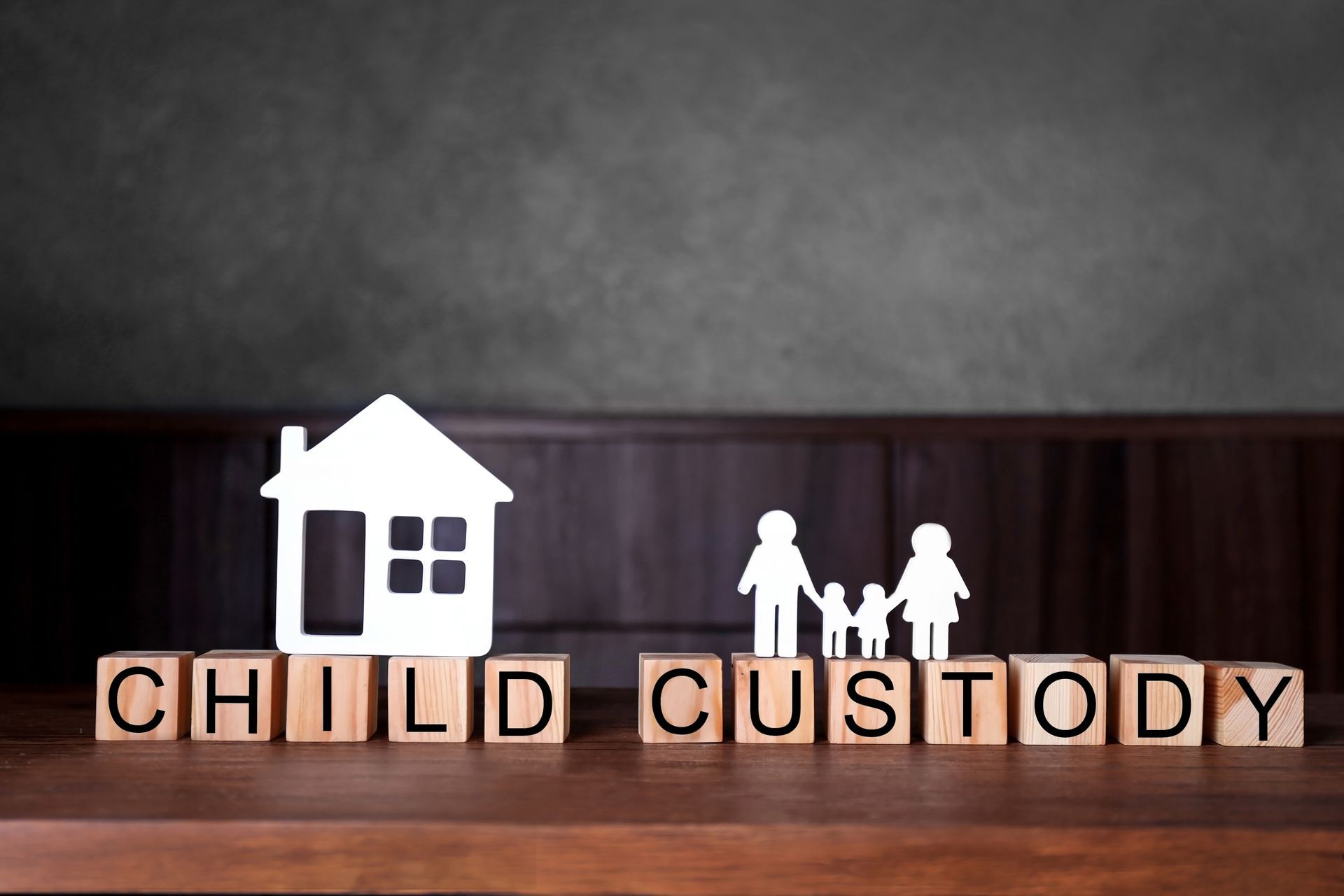
If you're going through a separation or divorce and have children, child custody is likely one of your biggest concerns. Pennsylvania’s custody laws can be complex, especially when emotions are high and families are adjusting to a new normal. Whether you're trying to create a custody agreement or preparing for court, it's important to understand how custody decisions are made and what your options are. This article is not legal advice. Every situation is different, and custody cases often involve factors that need to be reviewed by a qualified family law attorney. If you're in Allegheny County or the surrounding areas, Gaydos Law helps families navigate these matters and can offer guidance specific to your case. Types of Child Custody in Pennsylvania There are two main types of custody in Pennsylvania: legal custody and physical custody. Legal custody refers to the right to make important decisions about your child’s life, including education, healthcare, and religious upbringing. Physical custody refers to where the child lives and how much time they spend with each parent. Both types of custody can be shared or awarded to one parent. Shared custody means both parents have some level of responsibility and involvement. Sole custody means only one parent has those rights or responsibilities. Courts generally favor arrangements that encourage ongoing involvement from both parents, unless there’s a reason that wouldn’t be in the child’s best interest. How Custody Is Decided in Pennsylvania When parents can’t agree on custody arrangements, the court steps in to make the decision. Judges don’t automatically favor one parent over the other. Instead, they evaluate what’s in the best interest of the child. This is a legal standard that takes many factors into account, including: The child’s relationship with each parent Each parent’s ability to provide a stable home environment Any history of abuse or neglect The willingness of each parent to encourage a relationship with the other The child’s preferences, depending on age and maturity Proximity of the parents’ homes and the logistics of school, work, and care These are just a few of the factors courts consider. Every case is different, and the outcome depends on the specific facts and evidence presented. The Importance of a Custody Agreement Parents are encouraged to work together to create a custody agreement without going to trial. This can save time, reduce stress, and give both sides more control over the outcome. A good custody agreement outlines legal custody, physical custody, a visitation schedule, and how holidays, vacations, and other events will be handled. Once both parties agree, the court must approve the agreement. If it’s found to be in the child’s best interest, it will become a legally binding court order. If circumstances change down the line, either parent can request a modification. Working with an experienced family law attorney during this process can help ensure your agreement is thorough and enforceable. Gaydos Law has helped many families in Allegheny County and beyond develop clear, fair custody arrangements that reflect their child’s needs. What Happens If Custody Is Violated Once a custody order is in place, both parents are expected to follow it. Violating the terms can lead to legal consequences. This may include being held in contempt of court, losing visitation time, or facing other penalties. If you believe the other parent is not following the order, it’s important to document the violations and speak with an attorney. Likewise, if a situation arises where you need to change the terms—such as a move, job change, or concern for the child’s safety—it’s important to request a formal modification rather than take matters into your own hands. The court can review the request and decide whether the change is justified. Temporary Orders and Emergency Custody There are situations where one parent may request temporary or emergency custody. These are often used during the early stages of a separation or when immediate action is needed to protect a child. In these cases, a judge may issue a short-term order that remains in place until a full hearing can be held. To pursue emergency custody, you’ll need to demonstrate that the child is at risk of harm. This is a serious claim and should only be made when truly warranted. Filing false or exaggerated claims can backfire and negatively affect your case. If you believe your child is in danger, contact local authorities and speak with a family law attorney right away. Gaydos Law can help you understand your options and file any necessary emergency paperwork in accordance with Pennsylvania law. Do Grandparents or Third Parties Have Custody Rights in Pennsylvania In some cases, people other than the child’s parents may seek custody. Pennsylvania allows grandparents and certain third parties to request custody or visitation if they meet specific criteria. This usually involves proving that they’ve had a significant role in the child’s life or that the child would suffer harm without their involvement. These cases can be emotionally charged and legally complex. Courts will still apply the best interest standard and may require evidence showing why the child would benefit from continued contact or placement with someone other than a parent. If you're a grandparent or another caregiver seeking custody or visitation, it's important to consult a family law attorney who understands Pennsylvania’s custody statutes. Gaydos Law can help assess your eligibility and walk you through the process. Modifying a Custody Order As children grow and circumstances change, a custody order may need to be adjusted. You can request a modification if there’s been a significant change in circumstances, such as: A parent moving to a new location Changes in the child’s school or medical needs One parent becoming unavailable due to work or health issues Allegations of abuse or neglect The court will review the request and determine whether the proposed change is in the best interest of the child. Keep in mind that the process can take time, and you’ll need to provide evidence to support the request. Having legal representation can help make your case stronger and avoid common mistakes. The attorneys at Gaydos Law know what judges look for and can help present your situation clearly and effectively. Navigating Custody with Legal Help Custody issues can be some of the most stressful and emotional legal matters a family faces. It’s not just about paperwork and court appearances. It’s about your relationship with your child and their well-being. You don’t have to go through it alone. Working with a family law attorney gives you the support and knowledge you need to protect your rights and advocate for your child. Whether you're just starting the process, revisiting an old order, or responding to a sudden change, legal guidance can make a major difference in the outcome. Gaydos Law represents parents in White Oak, Pittsburgh, and throughout Allegheny County. Their team understands the local courts, the laws that apply, and the personal toll these matters can take. If you have questions about child custody, scheduling a consultation is a good first step toward clarity. This article is for general information only and is not legal advice. To speak with an experienced custody attorney, contact Gaydos Law directly.
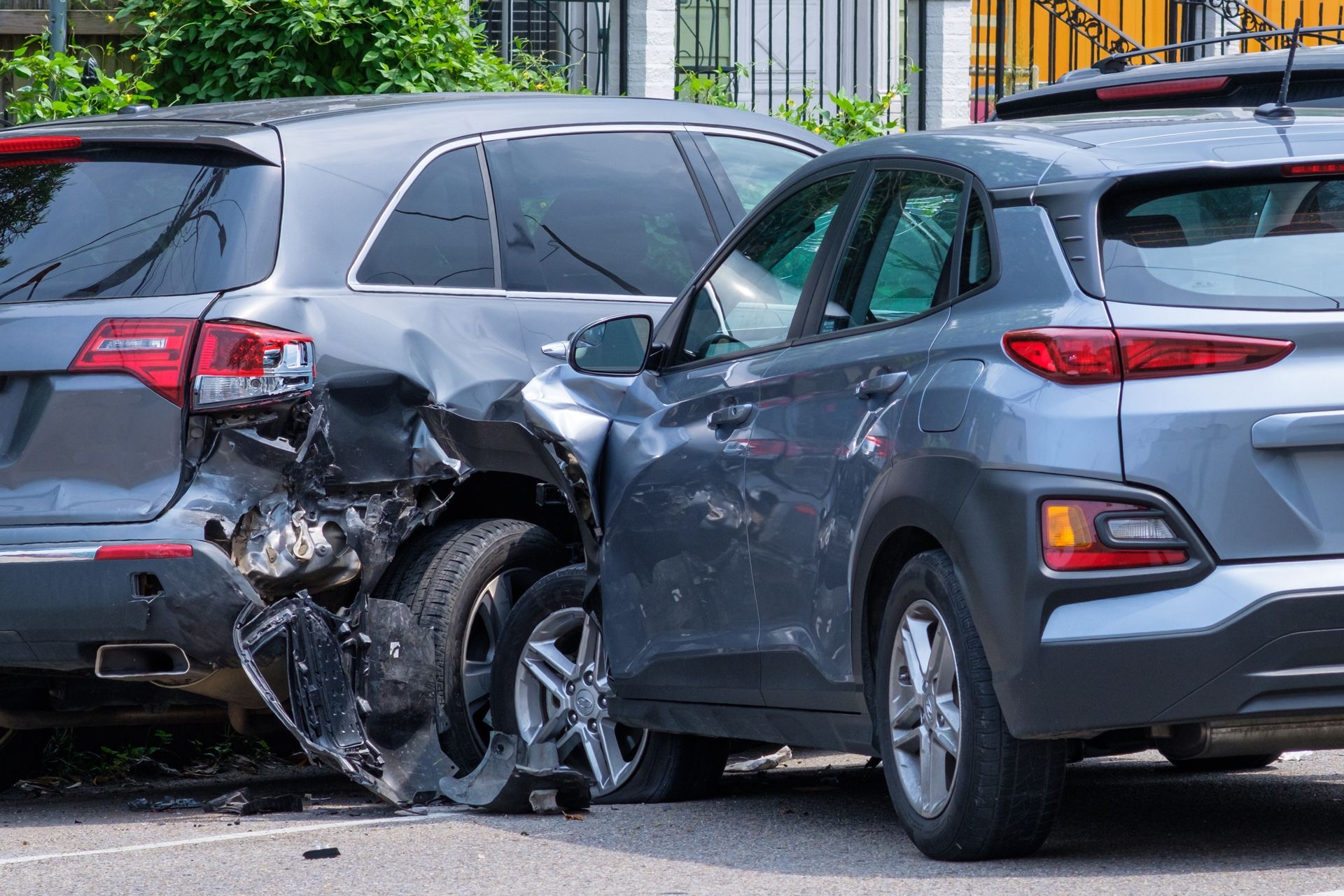
A car accident can turn a normal day into a chaotic one in seconds. Whether you're on your way home from work or running errands around Allegheny County, the aftermath of a crash can feel overwhelming. Between dealing with injuries, exchanging information, contacting insurance companies, and figuring out what to do next, it’s easy to make mistakes that could affect your ability to recover compensation later. That’s why it helps to understand what steps to take after an accident and how the legal process works if you need to pursue a claim. This guide is not legal advice. For specific guidance about your situation, it's important to speak with an experienced car accident attorney in Allegheny County. Gaydos Law handles personal injury cases throughout the Pittsburgh area and can help you understand your options if you've been involved in a crash. Stay Safe and Notify the Authorities Your first priority should always be safety. If you're able to move, check on your passengers and others involved. If anyone is injured, call emergency services right away. Even in what seems like a minor fender bender, contacting law enforcement is a smart move. A police report provides a written record of the incident, which can become an important part of your case later. It may help to clarify fault and details if there are questions from insurance companies or attorneys. In Pennsylvania, you’re legally required to report an accident if there’s an injury or significant property damage. Failing to report it could cause problems with your insurance claim or lead to legal trouble. In Allegheny County, local police or Pennsylvania State Police will usually respond, depending on where the crash occurred. Document Everything You Can After making sure everyone is safe and help is on the way, try to gather as much information as possible. This includes the name, address, phone number, license plate, and insurance information of the other driver. If there are any witnesses, ask for their contact information too. Take photos of the vehicles, the road conditions, any skid marks, traffic signs, and your injuries, if applicable. Many people assume the police report will cover all the facts. While helpful, these reports can sometimes miss small details. Your own photos and notes can help fill in those gaps and give your attorney a clearer picture of what happened. Seek Medical Attention as Soon as Possible It’s not uncommon to feel fine immediately after a collision, especially with the adrenaline rush that comes from a sudden impact. But some injuries, like whiplash, concussions, or internal trauma, may not show symptoms right away. Waiting too long to seek treatment can hurt your health and weaken your claim. Insurance companies may argue that your injuries weren’t serious or related to the accident if you delay care. Even if you think your injuries are minor, it's wise to get checked by a doctor. Medical records create a clear link between the accident and your injuries, which can be important if you pursue a personal injury claim later. If you're unsure where to go, your primary care physician, an urgent care clinic, or a hospital can all provide initial evaluations. Notify Your Insurance Company Promptly Pennsylvania follows a no-fault insurance system, which means your own insurance policy may cover your medical expenses regardless of who caused the crash. However, that doesn’t mean fault is irrelevant. If your injuries are serious enough to qualify for a liability claim, determining who was responsible becomes important. Call your insurance company as soon as possible to report the accident. Be honest about what happened, but avoid speculating or accepting blame. If the other driver's insurance company contacts you, it's best to avoid giving a recorded statement until you've spoken with a car accident attorney. Insurers may try to minimize your claim or use your words against you to avoid paying full compensation. Understand Pennsylvania's Comparative Negligence Law Pennsylvania uses a modified comparative negligence rule. This means that if you’re partially at fault for the accident, your compensation could be reduced by your percentage of fault. If you’re found to be more than fifty percent responsible, you may be barred from recovering damages altogether. Let’s say you’re found twenty percent at fault because you were slightly over the speed limit, but the other driver ran a red light. You might still be able to recover compensation, but it would be reduced by that twenty percent. Understanding how this rule works is key in evaluating the value of your case and what legal options are available. Why You Might Need a Car Accident Attorney in Allegheny County Not every accident requires legal help. But if you've suffered injuries, missed work, or are being blamed for something you didn’t cause, speaking with a car accident lawyer can help protect your interests. An experienced attorney understands how to evaluate medical records, analyze police reports, and communicate with insurance adjusters. They can also help you navigate the complexities of Pennsylvania’s no-fault laws and pursue additional compensation if your injuries meet the state’s serious injury threshold. The team at Gaydos Law has handled thousands of personal injury cases across the Pittsburgh region. Based in White Oak, they serve clients throughout Allegheny County and the surrounding areas. Their focus is on helping people understand their rights and guiding them through what can often be a stressful and complicated process. Keep Track of Expenses and Missed Work If you plan to file a claim, documentation is key. Keep records of all expenses related to the accident, including medical bills, prescription costs, property damage, and any time you’ve missed from work. Your attorney can use these records to help calculate your losses and determine what types of compensation might apply. In Pennsylvania, accident victims may be entitled to damages for medical treatment, lost wages, pain and suffering, and property damage. The specific amount will vary based on the details of your case. Again, it’s important not to assume anything. Every situation is unique, and general information online may not reflect your individual circumstances. Be Mindful of Legal Deadlines Pennsylvania has a statute of limitations that applies to personal injury cases, including car accidents. In most cases, you have two years from the date of the crash to file a lawsuit. Missing this deadline can result in your case being dismissed entirely. While two years may seem like a long time, building a strong case takes time. The sooner you start the process, the better your chances of success. There are also shorter time limits if the claim involves a government vehicle or public agency. This is another reason to consult with a local car accident attorney who knows how the rules apply in Allegheny County and beyond. Let a Legal Team Guide You Through the Process The legal system can be confusing, especially when you're dealing with injuries and trying to get your life back on track. An attorney who focuses on personal injury cases can handle the paperwork, communicate with insurance companies, and help you avoid the pitfalls that could hurt your claim. You're not expected to know everything about the law. That's why it's worth talking to someone who does. Gaydos Law brings more than three decades of experience to personal injury law. Their firm has recovered millions on behalf of clients and remains committed to helping people across Allegheny County who have been injured due to someone else's negligence. Whether you're dealing with a minor collision or a serious injury, it's worth scheduling a consultation to understand your options. This article is for informational purposes only and is not legal advice. To discuss the specifics of your case, contact a licensed attorney at Gaydos Law by visiting their website or calling their White Oak office.

My Bar exam story starts just like anyone else’s story. I signed up for the July Bar Exam, purchased a study aid, and prepared myself for the almost three monthlong process of studying. When I signed up, masks were not mandated, there was a toilet paper shortage, Tiger King was quickly becoming everyone’s favorite lock-down show to watch, and we all believed things would go back to normal in a month or so. It did not occur to me or anyone else that the Bar Exam would change –or that it even could change! I did not think that something as monumental as the Bar Exam could be affected by anything so I began studying like all lawyers have before me. In April 2020, the Pennsylvania Bar Association announced that the July 2020 exam would now be postponed to September 2020. Everyone who has taken the Bar knows that there is a rhythm and timing that comes with studying for the exam. Your time is used strategically, and your study schedule is designed to optimize the weeks leading up to your exam. Having to be told that the exam was postponed a few months threw a wrench into those carefully constructed plans. Never before had the Bar Exam been postponed. Regardless, I brushed it off and allowed myself to be comforted by the fact that I got two extra months to study. It’s not like they would postpone it again, right? In July 2020, the Pennsylvania Bar Association took it a step further –canceling all in-person examinations and switching to remote online exams in October 2020. We were all shocked. It was unbelievable that the Bar Exam could be postponed a second time, but even more unbelievable was that for the first time in its history, the Bar Exam would be administered remotely. The thought of taking the exam on my own from my own home had me racing with what-if scenarios. What if my wifi wasn’t strong enough? What if my family was home and was too loud? What if my computer randomly decided to catch fire or crash on exam day? What if a phone went off somewhere in my house and somebody thought it was mine? I did not want to be part of the first group to take the exam remotely–everything could go wrong, and there would be no one there to help me. I became even more anxious when a colleague of mine was scheduled to take the Florida Bar Exam in person, but two days before the exam it was postponed. My anxiety spiked. I could not imagine being within 48 hours of sitting for the exam that I had devoted months studying for only to be ripped from my grasp. I was also on edge because I was listening to my colleagues from Michigan explain the perils of their remote exams and all of the technological issued they faced. It did not seem fair. I had done everything right, followed all the advice, and studied everything that I was told to so I could get to this one exam. Being a lawyer was all I had ever wanted to be since I was 9 years old. While my elementary school friends wanted to be rock stars or princesses, I wanted to be the next Johnnie Cochran. I wanted to help people and give a voice to those who could not give one to themselves. I did not want to be a remote exam guinea pig. Each day of the exam brought its own struggles. The first day, none of my answers were uploading, which was problematic because they had given us strict instructions that answers had to be uploaded the same day. It was determined to be an exam-wide issue that all examinees were facing and eventually my answers were uploaded hours later. Crisis averted. I went into the second day of testing fairly confident since the only issue I had the day before was a delay in uploading answers. All of a sudden, tragedy struck. My laptop crashed SEVEN MINUTES BEFORE THE START TIME! I dropped to my knees. I frantically restarted my laptop and watched as nothing happened. It took ten minutes for it to restart and allow me to begin my exam. The last day of the exam seemed to run smooth. Either because I had experienced the worst that could happen in the exam (computer crash) or because by the third day everyone knew what to do. I did not have any technology issues, and my answers timely uploaded. I could not believe that I finally finished the first ever Pennsylvania remote Bar Exam. About two months after completing the Bar Exam, results were posted. I passed. I had achieved my biggest goal to date. I was finally becoming a lawyer. While my pandemic Bar Exam story differs from those in my profession who have taken this same road before 2020, it is satisfying to know that the hard work I put in to the years leading up to this one exam was all worth it. Nothing, not even a global pandemic, was going to stop me from achieving my dreams.

The facts and circumstances of custody cases vary widely from family to family. Oftentimes, particularly when the dispute is between natural parents, parties are able to resolve a custody matter via an agreement without substantial court involvement. When the relationship between parents is particularly contentious, however, or third parties are participants(third parties being anyone that is not a natural parent), the issues involved can be more complex. They can also include cases of child dependency, which generally involve the child welfare agency taking custody of a child. While somewhat less common, private dependency petitions can also be filed by caregivers of a child or, in cases of teenagers with behavioral issues, by police familiar with the family and the child’s behavioral challenges. Even more rare are cases that make their way through both custody and dependency (juvenile) court. Each and every family has a different dynamic and unique needs, so it is not unusual to stumble upon novel issues from case to case. It reinforces the need to have an experienced and battle-tested attorney to confront any issue that might arise during the life of your custody case. Gaydos Law recently handled a custody case between a mother and maternal grandparents in which the grandparents had cared for the child for many years. While mother had occasional contact with the child over time, her struggles with addiction meant that involvement was sporadic. Still, mother filed many requests to modify the custody arrangement of the child remaining with the grandparents, seemingly with no intention of ever truly reunifying with the child. After many attempts to resolve the issue of custody with mother, and father sadly passing away, the grandparents took matters into their own hands and filed a private dependency petition. This triggered the involvement of the county child welfare agency. It was a bit of a long road to establishing true permanent living arrangements for the child, but after much deliberation on the totality of the family’s circumstances, mother agreed to terminate her parental right and allow the child to be adopted by his grandparents. One final twist likely had a lot to do with the parties agreeing to the overall outcome: the parties participated in adoption mediation. Mediation itself is generally the process of interested parties sitting down with a neutral “referee” to assist the parties in finding common ground and resolving a legal dispute. Adoption mediation, while somewhat infrequently utilized, is used to finalize a permanency plan for the child and it is assumed that if the parties are participating in adoption mediation, that the likely outcome is an open adoption. Briefly, an open adoption is one in which the adoptive parents agree to allow some contact with the child even after a parent’s rights are terminated. Here, this outcome provided the stability the child needed and the possibility that he might have a relationship with his mother in the future if he desires. Custody cases can be difficult to navigate without counsel who can competently guide you through the unfamiliar and often unanticipated circumstances that may arise. At Gaydos Law, our experience, compassion and determination to see your case through to the most favorable outcome possible set us apart from others. Our knowledgeable attorneys are ready to handle your custody case today.

While much has been written about the economic difficulties facing tenants during this pandemic landscape, few people take the time to appreciate the challenges that face landlords who often struggle to feed their own families or pay mortgage and property taxes during an eviction moratorium. Unlike with residential and commercial tenants who may qualify for broad state and federal assistance, well-intentioned landlords may find themselves left in the cold. The attorneys at Gaydos Law have more than thirty years of experience in handling complex leasehold matters and have the knowledge and skills to help landlords navigate through the constantly evolving judicial policies and procedures. In one recent case, we were able to secure for our clients a judgment of possession of real property even though the majority of such cases had been delayed and rescheduled for “status conferences” consistent with a newly updated Allegheny County administrative order. These clients had not received any rental monies for nearly a year due to their understanding of the judicial stays on eviction, and our office was able to assist them in finally retaking their property. As the pandemic continues to change the way that the courts conduct business, it is vital that you engage with a legal team that can adapt to these circumstances and provide you with the results that you expect. Please contact us at (412) 678-7900 to see how our team may be able to help you. We recognize that every matter is different and prior results do not guarantee similar outcomes in future cases.

Recently Gaydos, Gaydos & Associates, P.C. scored a significant victory against a local ambulance transport company. Attorneys Joseph M. Gaydos, Jr. and Michael R. Potochny represented a 47 year old woman who was being transported via ambulance transport to an appointment with her physician when the ambulance driver/operator and the company were negligent in their actions. We found the driver acted in violation of the rules and regulations of the ambulance company. As a result of the numerous violations of the Defendant’s own rules the client had a slip and fall from the ambulance breaking her hip in the process. This case was heavily weighted with documentary evidence that was used to prove liability against the ambulance company. This was not a typical automobile accident, crash or collision. Gaydos, Gaydos & Associates, P.C. utilized nationally recognized experts in transportation safety from New York City that are known because of their experience in identifying violations of industry standards as well as other factors that contributed to our client’s personal injury. We felt particularly strongly about this case because a person who is paying to a company to safely transport them certainly expects that the company would do so in the safest way possible. The attorneys at Gaydos, Gaydos & Associates, P.C. also utilized various orthopedic physicians, surgeons, physiatrists and future care experts to make our client’s case. As always, Gaydos, Gaydos & Associates, P.C. advanced the litigation costs on behalf of our client, which in this case exceeded $60,000.00. We have been representing injured people for over 30 years. Thousands of clients have been represented by Mr. Gaydos and he has recovered tens of millions of dollars for the injured victims that have trusted the care of their personal injury matter to Gaydos, Gaydos & Associates, P.C. Call us to help you today at 412-678-7900 and ask for Attorney Joe Gaydos.

At Gaydos Law, P.C. we understand the additional burdens and anxieties that these ever-changing times present for our clients and the community at large. Since the signs of the COVID-19 emergency have become more apparent, and particularly since Governor Wolf authorized the state-wide stay-at-home order, we have received numerous calls and emails from clients with a pressing, time sensitive need to get their estate plans in order. In times of crisis and uncertainty, it has become more necessary to make certain that our families are protected and that we have the appropriate contingencies in place. We are often asked how we can assist people in these matters when the stay-at-home order all but prohibits the traditional, in-person meetings that we have grown accustomed, and which require the physical presence of notaries public. As of April 2, 2020, the Department of State requested and received a temporary limited suspension of the Pennsylvania statute requiring in-person notarization to accommodate these concerns during our global crisis. Specifically, the suspension now allows for remote notarization of certain documents, including powers of attorney, self-executing wills, and advance health care directives. With the use of audio-video technologies that are available on our computers and other mobile devices, Gaydos Law, P.C.has the blueprint in place to comply with these evolving laws and to serve our community as it has done for more than thirty years. If these frightening times have provided you the spark to finally have your wills prepared or powers of attorney in place, Gaydos Law, P.C. has the resources and tools to ensure that your needs are met with the professional service that you expect. We offer package rates for customers who want to have their last wills, general durable powers of attorney, and advance health care directives prepared, and we will be honoring a significant discount for all essential, front-line workers who do not have the ability to work at-home through these trying times. Please contact us at (412) 678-7900 , or by email at mpotochny@gaydoslaw.com,to discuss how we may best assist you through this process

As a personal injury law firm with a reputation for aggressive client advocacy, GG&A has received a great many inquiries from accident victims regarding how COVID-19 might affect the outcome of their legal claims. While the pandemic has dramatically altered the way we conduct our daily lives, it is important to remember that the value of any personal injury action is connected to the frequency and compliance with doctor-recommended treatment. Even with a stay-at-home order in place, you should not forego essential therapy and visits that will aid in your recovery, and we can assist you in working with your health care professionals to find alternative solutions so that you do not need to suffer gaps in your treatment. The professionals at GG&A understand that we are all in this together and we make ourselves available for no-cost remote consultations for all personal injury matters. Contact us at (412) 678-7900.

Should I hire estate planning attorneys to prepare my will? In Pennsylvania, having your last will and testament prepared by experienced attorneys may be the most reasonable investment into your peace of mind. While the Probate, Estates and Fiduciaries Code outlines a plan for how your property should pass when you die without a will, the intestacy statute is silent on a number of critical considerations, including who may serve as guardian of your minor children. The seasoned attorneys at Gaydos, Gaydos & Associates, P.C. recognize the most common pitfalls in estate planning and preparation, and are able to work with you to make certain that your loved ones are provided for according to your own terms. Can I prepare my own will? With respect to last wills, longstanding Pennsylvania law only requires that an instrument be written and signed by the decedent at its end, evidencing a reasonably certain declaration of intent. Although other important considerations exist (e.g. whether the instrument should be “self-proving” with the affidavits of two witnesses), testamentary intent is indispensable and the format is largely immaterial. For example, a valid will may be created on loose leaf paper so long as it shows testamentary intent and is signed at the end. While the requirements for creating a valid will are minimal, the decision to prepare your own estate planning documents is often perilous. The Pennsylvania Superior Court, in a memorandum decision, recently addressed whether a handwritten document, signed and dated by the decedent, should have been admitted to probate.1The document, which referred to itself as a will, indicated that it was to supersede all previous wills, and even contained specific bequests for friends and family. In determining whether the document had the requisite testamentary intent, the trial court looked at ambiguities in the document itself, including omissions and potentially missing pages. Even though the decedent had carefully stated her intention to dispose of certain property and revoke prior wills, the court found that the document was more likely handwritten preparatory notes. The Superior Court affirmed the trial court’s findings. While you certainly can prepare your own will it does not mean that you should. Apart from simply having an instrument that is valid for probate purposes, our attorneys can assist you in finding a global solution that addresses your unique needs and concerns. Contact us at (412) 678-7900 to discuss your options and schedule a consultation.

Unfortunately Coronavirus is real and it is here to stay for the near future. At Gaydos, Gaydos & Associates, P.C. (GG&A), we are complying with the Pennsylvania Governor’s Orders to shut down and shut in. From the beginning of this terrible situation, the attention at GG&A has been directed toward how do we do our part to help battle this virus? As importantly is the question, “How do we continue to service the current and future clients of GG&A by taking care of open files and creating a system that allows us to take care of our new cases and clients”? High on the list of goals for GG&A is to keep our lawyers and staff productive as our level of commitment to our employees would make a reduction of personnel or layoffs a last choice. Our lawyers and staff are talented and have developed relationships with our clients that allow them to call us for advice as easily and comfortably as calling a friend or family member. During this crisis, we want to make it clear that we are available to continue our services to you, offering advice and preparing the necessary documents to address your needs. How can we continue to handle your auto accident, divorce, visitation, support, estate planning, will preparation, estate administration or any other legal need in a way that ensures both our lawyers and staff and our clients remain safe? We have all of our employees connected to the office server and computer through state of the art, virtual private networks which allow the entire team at GG&A to continue to work on our clients’ matters in real time from the safety of their home. Additionally, we have replaced the telephone system at GG&A to a hosted cloud based telephone system that is seamless and acts as if each person was sitting at their individual office no matter where in the world they may be. Each of the above investments in technology assures that we can offer our clients the two most important qualities in providing legal services, access to information and the ability to communicate to the client. All of the technology is encrypted and safely allows business to be conducted without breaches of security and privacy. We will continue to handle your ongoing case in a responsible and professional manner. Your phone call to GG&A will be answered and you have access to the lawyer handling your matter. We are able to continue to create the documents needed to move your matter through completion and in the event that notary services are required, we can assist by providing curbside service. It is our aim to allow your legal matter to be handled as efficiently as possible without requiring you or our staff to physically be present at the office. Please allow us to continue to serve you during this time of apprehension and worry by giving us a call with your issues that may arise. Thank you for your loyalty to us in the past and as times and circumstances change, please know that GG&A continues to adapt so that we can provide professional convenient services to you. Your legal team at GG&A, where you get the “Attention you deserve, and the results you Expect!”

The law office of Gaydos, Gaydos & Associates, P.C. has been retained to represent a victim who was terribly burned and disfigured after a vape battery suddenly exploded. There was no warning of the impending disaster and the battery caught fire while in the client’s pocket, burning through his clothing, skin on his thigh and almost to the bone. The burn injury victim was forced to endure skin grafts and continues to have an unsightly scar as a result of the personal injury accident. This type of case is called a products liability action and many of these cases have been filed against battery manufacturers because of the defective condition of the batteries. Because of the dangerous materials used in the battery, strict liability in this personal injury products liability action may become an issue. We will blog developments in this case as it moves ahead. If you, or someone you know, has had serious injury caused by a defective product or a product that has inadequate warnings or labeling, call Gaydos, Gaydos & Associates, P.C. at 412-678-7900 for a free consultation.

What rider doesn’t enjoy the warm air and sunshine that comes with riding a motorcycle in Western Pennsylvania during the Summer? Attorney Joe Gaydos has been a rider of motorcycles for over 45 years and has represented the victims of motorcycle accidents for 33 years. As a rider, Joe has been exposed to many incidents that have occurred because of another driver’s negligence. Left hand turns in front of an oncoming motorcycle is frequently the cause of horrific accidents. Over the decades of our law practice, we have handled personal injury motorcycle cases that have resulted in broken bones, lacerations, orthopedic injuries, brain injury, scarring and unfortunately death. We have received millions of dollars for our accident victims. Recently we have seen a surge in motorcycle accident cases which were caused by automobile driver negligence in rear ending stopped motorcycles. The common factor in these recent cases was that the riders did not have helmets on and they were stopped near the center line waiting to make a left hand turn. The auto drivers all claim they never saw the motorcycle. If you are the injured victim of a motorcycle crash call upon the years of legal experience that we have here at Gaydos, Gaydos & Associates, P.C. If you have been injured because of another’s negligence, carelessness or lack of attention, call us today at 412-678-7900.

The state-wide economic shutdown resulting from theCOVID-19 crisis has created a great deal of financial uncertainty for many Pennsylvania families. Now more than ever, it is important to make your child support and/or spousal support matters a priority. Typically, a support conference is scheduled within three to four weeks of a support complaint being filed, depending on the county, at which time the appropriate amount of monthly support is determined. While the courts are not currently operating under ordinary procedures and there may be some delay in conferences being scheduled, complaints for support can still be filed and amount due will be calculated from the date the complaint was filed. For example, if a support complaint is filed on April 20, but the support conference is not scheduled until May 31, Pennsylvania will calculate the amount of support due to the filing party from April 20going forward. The back-support owed or “arrears” can be paid in a lump sum by the payor immediately if they are financially capable, but in most cases, the payor will be ordered to pay a portion of the arrears each month until they are paid in full. So don’t wait until the courts are back in regular order to get your support complaint on file! You may be selling yourself short on the amount of support due to you. Providing for ourselves and our families is hard enough in these trying times. Every day that you wait is support that you lose. Let Gaydos, Gaydos & Associates, P.C. assist you with your support matters today. Call 412-678-7900 today.

When it comes to your child’s right to a free public school education, having an experienced attorney who understands a school district’s responsibility is imperative. At Gaydos Law, P.C., we feel that all children, regardless of ability, have the right to access a free public education with the supports for them to be successful. In a system that might feel foreign to parents, and stacked against the student, it is necessary to have an advocate in your corner who understands the responsibilities that a school district has to provide the necessary supports for your child. Whether your child has needs that fall under Section 504 of the Rehabilitation Act (Section 504) or under the Americans with Disabilities Act (ADA), schools are required to provide accommodations under both of these categories. From the initial request for evaluation to the enforcement of a 504 Plan or an Individual Educational Plan (IEP), our experienced education lawyer can help guide you through the process. Allow our firm to assist in obtaining the services and reasonable accommodations that your child with special mental or physical needs in entitled to. Even if your child has not qualified for a formal IEP, a school district is still required to provide additional support for any child with a diagnosed mental or physical challenge. Please call to schedule a consultation today.
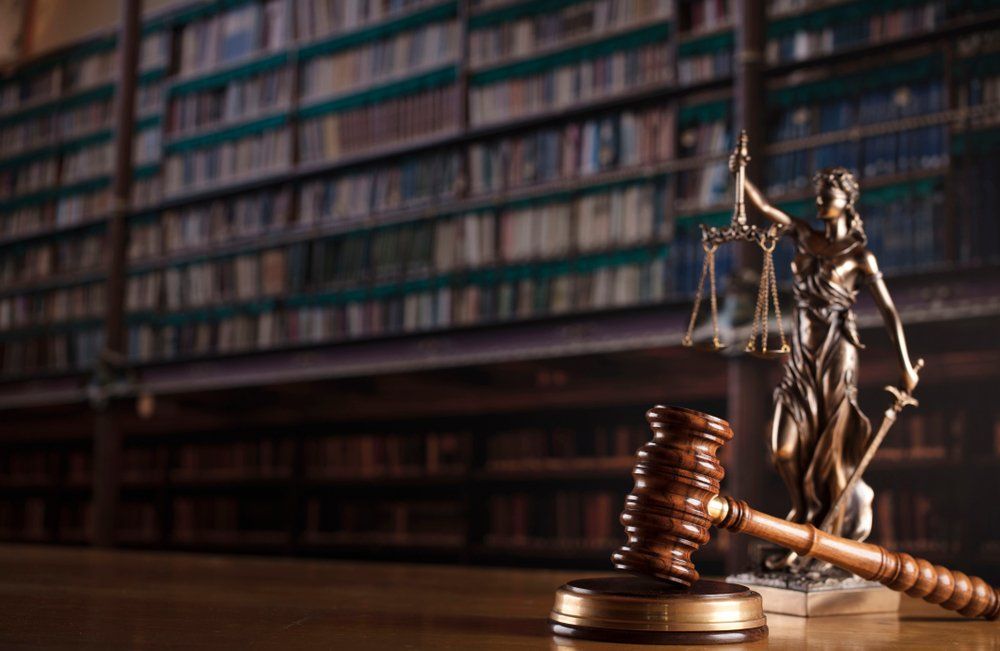
The National Trial Lawyers is pleased to announce that Joseph Gaydos of Gaydos Law, P.C. in White Oak has been selected as an NTL ‐ Civil Plaintiff ‐ Top 100 Trial Lawyer in the state of Pennsylvania. This honor is given to only the top 100 attorneys in each state or region for their superior skills, qualifications, and results as criminal defense or civil plaintiff lawyers. Membership into The National Trial Lawyers provides recognition to these distinguished attorneys, and provides essential legal news, information, networking, and continuing education to trial lawyers across the United States. The National Trial Lawyers congratulates Mr. Gaydos for demonstrating superior qualifications, leadership skills, knowledge, and success. By combining resources, power, and influence, The National Trial Lawyers Top 100 is dedicated to preserving and defending justice for all. To learn more about The National Trial Lawyers, please visit: http://thenationaltriallawyers.org/ .




